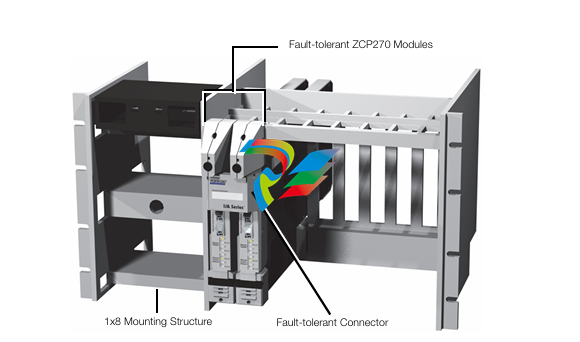
Ready to Ditch the 9-5 Job? Here Are 7 Exciting Industry Careers
A 9-5 office job isn’t for everyone. Perhaps you crave an adventurous, high-pressure, and unpredictable work environment, or you simply want to escape the monotony of your current position.
Some people happen to be at their most productive in the middle of the night, while others focus best when they are away from the constraints of a desk.
If this sounds like you, and you’re interested in pursuing an industrial career that’s a little out of the ordinary, the following list of exciting industrial careers might be a good place to start.

1. Petroleum Engineer
Petroleum engineers are responsible for designing and developing techniques for extracting oil and gas from deposits below the Earth’s surface.
While some of their time is spent in an office, these professionals travel regularly to visit drilling and well sites and to meet fellow engineers, oilfield workers, and customers. Petroleum engineers typically work in shifts or rotations, such as three days on duty followed by three days off duty.
Requirements: A bachelor’s degree in petroleum engineering or a similar field, such as mechanical, civil, or chemical engineering.
Median salary: $130,000 per year
2. Air Traffic Controller
Air traffic controllers coordinate the movements of aircraft to ensure safety. They are required to communicate with aircraft and air traffic centers, monitor weather conditions and visibility, and advise pilots on runway availability and clearance for takeoff and landing.
Because there are flights at every minute of every day, air traffic controllers must work around the clock stationed in control towers, approach control facilities, or en route centers. Shift work is common, and the job demands focus at all times, which means it can be pretty stressful. But an air traffic controller is rarely bored on the job.
Many other professionals in the aviation industry, including commercial pilots and avionics technicians, also enjoy an unconventional working life.
Requirements: An associate’s or a bachelor’s degree from the Air Traffic Collegiate Training Initiative program, plus several years of experience. Air Traffic Controllers must be U.S. citizens, and training must be completed at the Federal Aviation Administration (FAA) Academy.
Median salary: $137,000 per year
3. Video Game Designer
Unlike most of the professions featured in this list, video game designers typically work 9-5 hours. But while the schedule might be mundane, the job itself is most certainly not.
These professionals leverage their web development, programming, and UX skills to imagine every detail of a game. This includes its plot, characters, aesthetic, and layout. Artistic vision, creativity, and a knowledge of gaming trends are crucial skills for a career in this field, as are analytical capabilities and the ability to work with a variety of design teams.
Requirements: A bachelor’s degree in software engineering or a related field.
Salary range: $47,349 to $172,094
4. Laser Operator
A career as a laser operator would suit a professional who prefers practical work. Laser operators are responsible for operating laser-powered machines and devices that manufacture metal products via cutting, engraving, or puncturing.
As well as operating machinery, these professionals must routinely inspect all equipment to ensure it is in proper working order.
Requirements: High school diploma or equivalent. Some employers may require a short-course technical certification or accreditation.
Mean salary: $57,000
5. Plant Manager
The responsibility for meeting an organization’s key objectives lies with the plant manager. These professionals oversee the day-to-day operations of a plant, allocating resources, upholding the proper policies and processes, and driving efficiencies wherever possible.
A plant manager’s job can be stressful since they are required to make quick decisions, solve problems, and manage conflicting opinions. But no two days are the same, and they get to work across all business functions in a fast-paced and dynamic environment.
Requirements: A degree in business administration, industrial engineering, or a related field. Several years of management experience within an industrial business can sometimes substitute for formal education.
Salary range: $195,000
6. Construction Manager
A construction manager plans, coordinates, and oversees a range of construction projects, which could include building residential and commercial buildings, bridges, and roads.
Similar to plant managers, these professionals must be excellent people leaders and be capable of thinking quickly on their feet in a high-pressure and time-sensitive environment. Because construction managers often work on a project-by-project basis, there are opportunities for travel, meeting different people, and working flexibly.
Requirements: Bachelor’s degree in construction, business, engineering, or a related field.
Salary range: $138,000
7. Environmental Engineers
This emerging branch of engineering is often misunderstood. An environmental engineer applies the principles of engineering, biology, chemistry, and soil science to research and develops solutions for environmental problems. Their work might focus on recycling, waste disposal, public health, and pollution.













































.jpg)
.jpg)
.jpg)





.jpg)



.png)
.jpg)

.jpg)
_lVjBYb.jpg)

.jpg)
.jpg)



.jpg)
.jpg)







.jpg)

.jpg)
.jpg)











.jpg)




.jpg)
.jpg)
.jpg)
.jpg)
.jpg)
.jpg)

.jpg)

.jpg)
.jpg)
.jpg)






.jpg)


.jpg)






